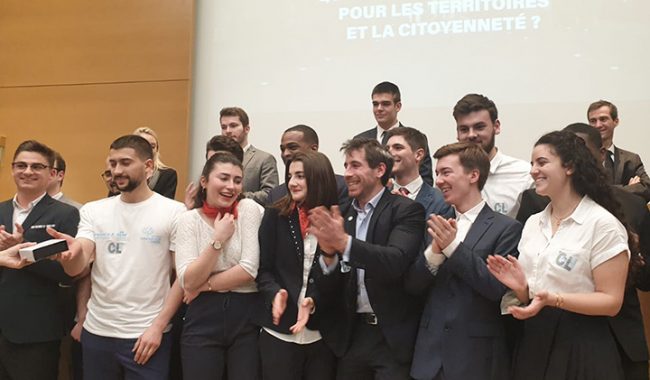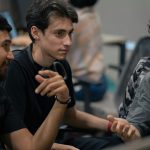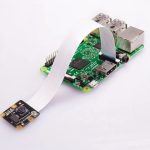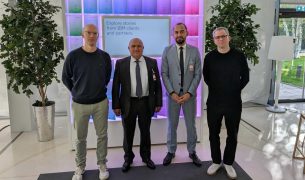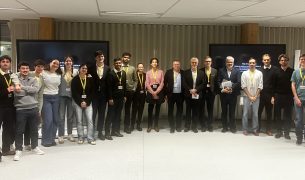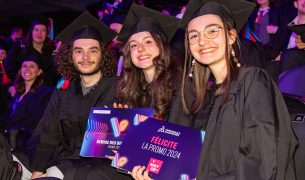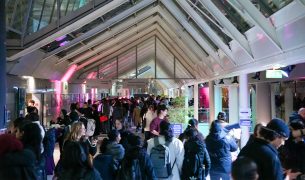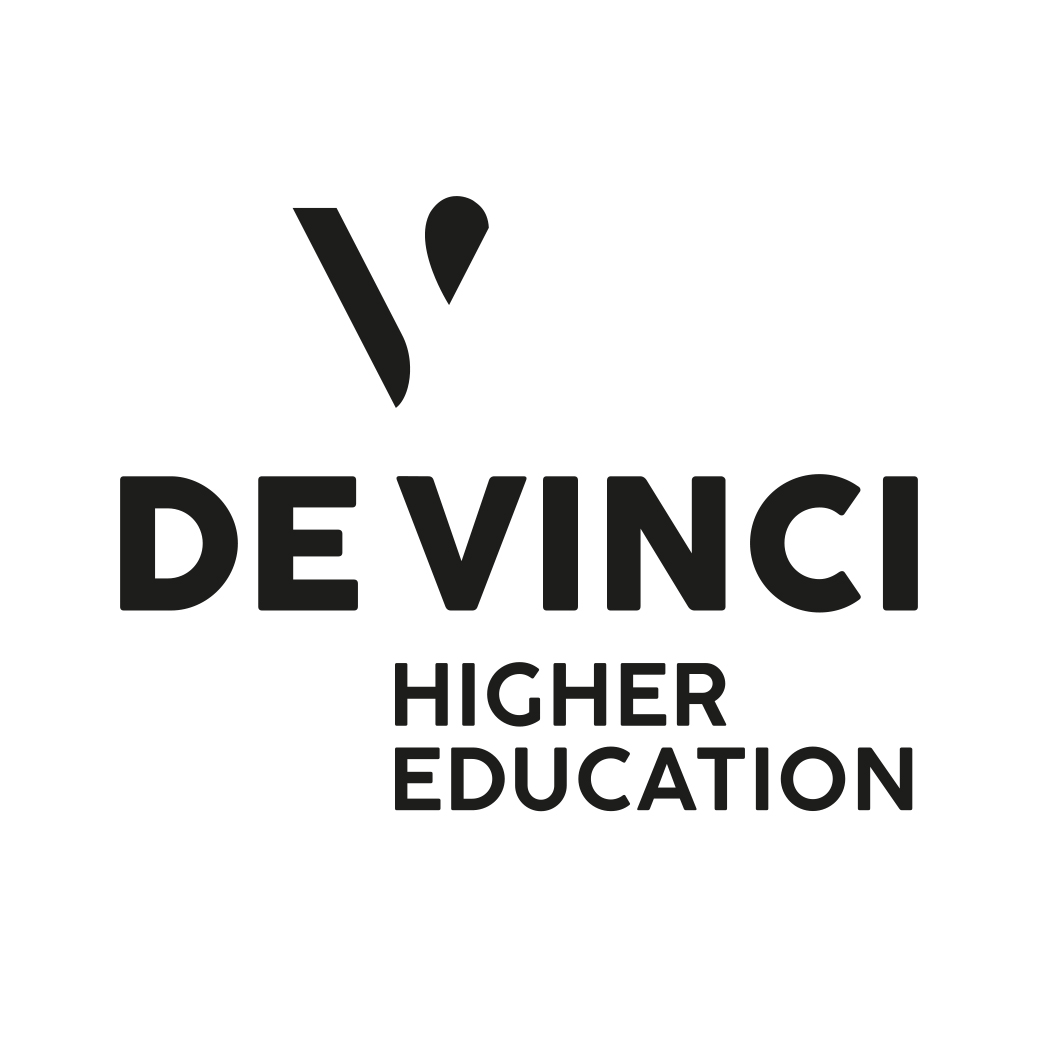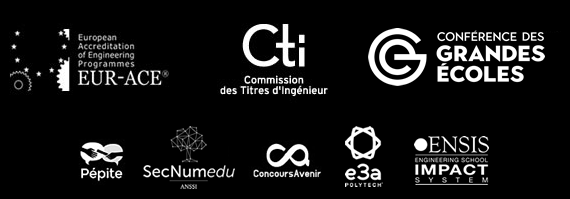The last event of the Oracle Hackathon Programme took place on January 31. The Hackathon “Territoires d’Industries” brought together over 120 outstanding students from 4 French universities: IESEG, ESILV, Epitech and 42. In the final round, four teams among the five selected to make their pitches at the Palais du Luxembourg were from ESILV Graduate School of Engineering. They have presented digital solutions for corporate partners, that have been developed as a part of the Projects of Industrial Innovation at ESILV. The WinX project, an augmented aircraft window (Air France), designed by eleven students from ESILV had a special “favourite” mention from Oracle’s Innovation Hub.
On January 31, 2020, the Palais du Luxembourg, better known as the “Sénat”, hosted the final round of the hackathon on digitalization of the industry. Students coached by company mentors have presented their hacks as a part of the Symposium on industrial challenges for French territories and its citizen.
PI²4 projects developed by ESILV student teams for Air France, Renault, Orange and Pernod Ricard
WinX, “your new window experience”, special “favourite” mention
The jury’s “special favourite” : the WinX project, for its proof of concept of an aircraft window enhanced by augmented reality, based on LiFi technology. This highly innovative project that aims to transform Air France customer experience was designed and presented by :
Julien PYTEL (Project Manager, majoring in Iot & Security), Reza ZOHRABI (IoT), Eva POLITIS (IoT), Simon CAZIER (IoT), Aymeric DAMOUR (IoT), Lorenz DIVAD (Modelling & Computational mechanics), Sébastien FALLAS BAUDUIN (Modelling & Computational Mechanics), Ariane HUCKEL-ANTOINE (IoT), Rémi PERRIER (IoT), Aurélien RAME (IoT), Adrien TURCHINI (IoT).
1/ On January 31st, our WinX project had a special « favorite » mention from Oracle’s Innovation Hub at the Palais du Luxembourg during the colloqium as part of the territories of industry initiative. pic.twitter.com/TFVHiVo2pW
— PYTEL Julien (@JulienPytel) February 17, 2020
Project of Predictive and Condition-Based Maintenance for Renault Digital
PI2 project-team responded to the “problem” of improving the predictivity of maintenance at the Renault’s Cleon Plant, thanks to cloud, IoT and machine learning technologies. The machining center also tests and deploys many of the plant’s 4.0 technology bricks: automated logistics carts, sensors, 3D printing, exoskeletons, collaborative robots or virtual reality training.
Very proud to have presented our project with Renault Digital and Oracle at the Palais du Luxembourg where sits the French Sénat.
Very proud to have presented our project with Renault Digital and Oracle at the Palais du Luxembourg where sits the French Sénat. pic.twitter.com/ilCJCLAeHc
— Arnaud Magarian (@naunau833) February 17, 2020
The project was led by: Arnaud MAGARIAN (IoT), Jordan FLON (IoT), Augustin CUSTOT (IoT), Naima GALFOUT (IoT), Thomas TRAULLE (Energy & Sustainable cities).
Orange Juice Project : Improving B2B User Experience
The Orange Juice is an all-in-one solution, individually customized to revolutionize B2B customer relationship at Orange.
It includes a chatbot, a voice-activated personal assistant and a digital assistant.
The team at the helms of this self-care project: Samuel BOYER (IoT), Guillaume PUSTOCH (IoT), Léo SIMON (IoT), Shutao WU (IoT), Emilie YANG (IoT).
Safetival Project : a personal safety wristband for Pernod Ricard
The smart wristband for the safety of women in musical festivals was a project with the French drinks giant Pernod Ricard.
A predominantly feminine team has conceived and presented its smart device: Teddy LECLERCQ (Project Manager, IoT), Anissa SAYAH (IoT), Capucine ROHART (IoT), Emeline LAHONDES (Modelling & Computational Mechanics), Baptiste SAINT (Energy & Sustainable cities).
Territoires d’Industrie, a government initiative to preserve “Made in France” label
Territoires d’Industrie is a program launched in November 2018 by Prime Minister Edouard Philippe to revitalise the French industry and to make French industrial professions attractive. The Oracle teams contribution was facilitated by the support of the Innovation Hub and Oracle Industry Solutions Department, through a hackathon program inspired by TRIZ (Theory of inventive problem solving) method.
The projects developed by ESILV student teams will be available on 1 April during the Industrial Innovation showroom at the Pole Leonard de Vinci.









